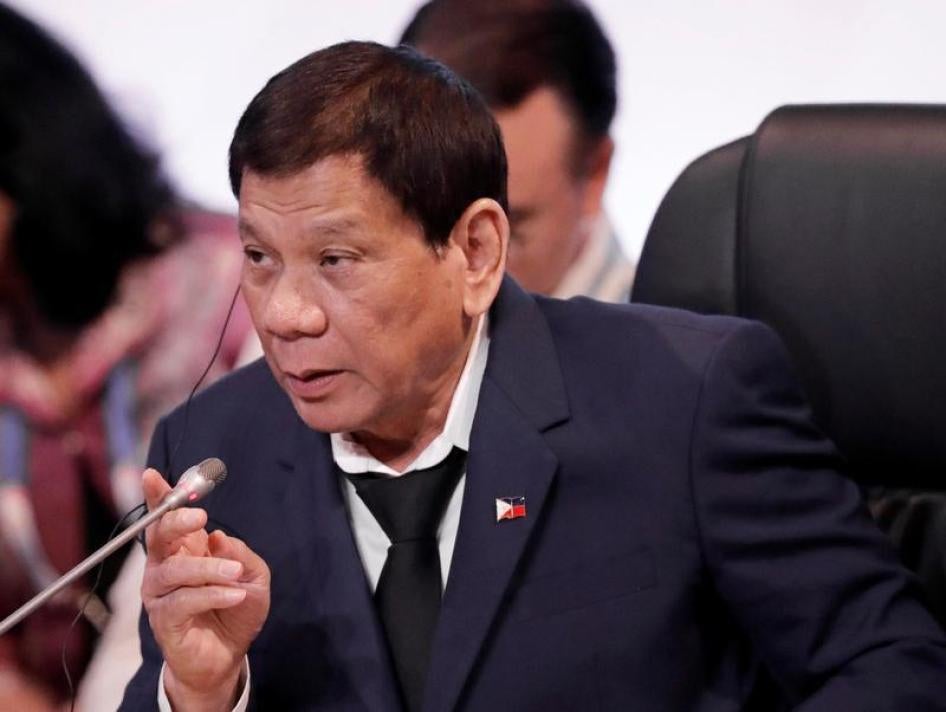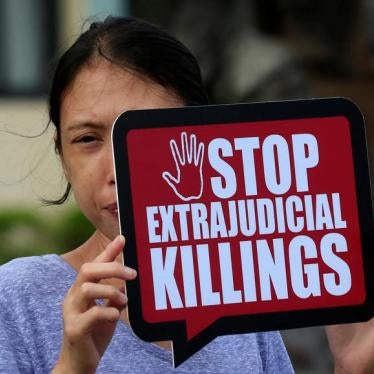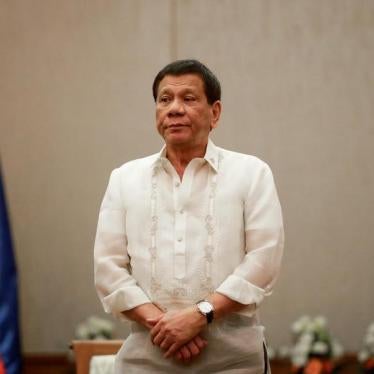Brace for more bloodshed.
That’s the key takeaway from a speech Philippine President Rodrigo Duterte made today in which he warned that, “Whether I like it or not, I have to return that [anti-drugs operation] power to the police.” Duterte didn’t specify when he might do so, but justified a resumption of police anti-drug operations – which Human Rights Watch research has linked to numerous extrajudicial executions by police and their agents – over concerns the Philippine Drug Enforcement Agency (PDEA) alone wasn’t able to effectively lead official anti-drug efforts.
On October 12, Duterte suspended police anti-drug operations and assigned the PDEA to be the sole anti-drug enforcement agency, relegating the police to, “forwarding of intelligence information to PDEA.” Duterte implicitly acknowledged the decision was linked to growing domestic and international furor over the drug campaign’s horrific human toll by stating the suspension will be, “better for the bleeding hearts and media.” Duterte declared a similar suspension in January, when the estimated “drug war” death toll was about 7,000, a move that followed revelations of the brutal murder of a South Korean businessman by anti-drug police. But that suspension was lifted a month later and nongovernmental organizations and media outlets estimate more than 12,000 people have been killed over the past 16 months.
The resumption of police anti-drug operations was not wholly unexpected. Philippine National Police Director General Ronald dela Rosa, who has been a full-throated supporter for Duterte’s unlawful killing campaign, criticized the suspension last month, saying, “Drug pushers are saying hallelujah.” Duterte may also have been emboldened by unwillingness of either US President Donald Trump or fellow Association of Southeast Asian Nations leaders to publicly challenge the drug war slaughter during the ASEAN 2017 Summit, which the Philippines hosted earlier this month.
The Duterte government’s apparent desire to resume the murderous drug war underscores the need for a United Nations-led international investigation into the killings. Until that happens, the number of victims denied justice and accountability will likely only continue to grow.









